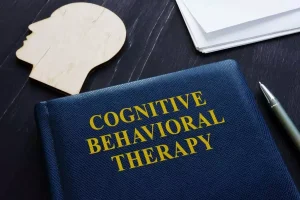
The researchers also found that the risk of epilepsy increased as alcohol consumption increased. According to the researchers, these results are consistent with previous studies. In a 2018 study in which 204 people with epilepsy reported consuming alcohol in the last 12 months, researchers found alcohol withdrawal seizure that seizure worsening related to alcohol consumption was reported in 18.1% of these people. When someone drinks alcohol for a prolonged period of time and then stops, the body reacts to its absence. This is alcohol withdrawal, and it causes uncomfortable physical and emotional symptoms.
- Inhibitory neurotransmitters prevent certain chemical messages from passing on.
- In addition, in experiments with recombinant GABAA receptors, low concentrations of GABA were not found to affect the most abundant GABAA-receptor isoforms, which contain the γ2 subunit.
- People with a history of alcohol misuse seem to have a greater risk of developing sudden unexpected death in epilepsy (SUDEP) than people with epilepsy with no history.
- A large amount of alcohol may not be required to prevent withdrawal; often 1-2 drinks per night will be sufficient.
Deterrence and Patient Education
Your CNS must work harder to overcome the depressant effects of alcohol to keep your body functioning. Each of these symptoms can increase in intensity depending on the severity of the withdrawal. The FHE Health team is committed to providing accurate information that adheres to the highest standards of writing. If one of our articles is marked with a ‘reviewed for accuracy and expertise’ badge, it indicates that one or more members of our team of doctors and clinicians have reviewed the article further to ensure accuracy.
1 Acute alcohol withdrawal
All condition, treatment and wellness content is medically reviewed by at least one medical professional ensuring the most accurate information possible. You will typically require hospitalization if you experience seizures related to alcohol withdrawal. While in the hospital, a medical team can monitor any other symptoms you may experience, as well as treat your seizures. Those who have a history of detoxification are https://ecosoberhouse.com/ more likely to experience seizures during alcohol withdrawal. In these cases, we recommend that patients should be started immediately on a SML dose regimen, while monitoring the withdrawal severity (CIWA-Ar ratings) and clinical signs of tachycardia and hypertension. A fixed dose regimen can be safely used in such patients in case adequate trained personnel are not available or if outpatient treatment is advised.
- It can be carried out at home, in the community or in a hospital or other inpatient facility.
- You will typically require hospitalization if you experience seizures related to alcohol withdrawal.
- To calculate the DF using bilirubin in micromol/l divide the bilirubin value by 17.
- Research shows people who have a supportive social network are more likely to remain alcohol-free after withdrawal.
- For mild alcohol withdrawal that’s not at risk of worsening, your provider may prescribe carbamazepine or gabapentin to help with symptoms.
Support Groups

While dependence is the result of changes in your brain’s chemical balance, addiction involves your brain’s reward system. This system encourages you to repeat important activities, such as eating. This part of your brain works with feel-good chemicals like dopamine, which are responsible for rewarding, pleasurable feelings. Alcohol works in the brain by influencing a chemical called GABA, or gamma-Aminobutyric acid. GABA is a neurotransmitter responsible for slowing down activity in your brain so you can sleep, relax, and release stress.

When this happens, your central nervous system can no longer adapt easily to the lack of alcohol. Phenobarbital has a very simple pharmacology, which is well suited to treat alcohol withdrawal. The prodrome stage can last for 10 minutes and involves some of the first signs that a seizure may be about to happen. Symptoms that you may experience in this stage include confusion, anxiety, irritability, and headache.
Kindling is a term describing a neurological phenomenon that makes alcohol withdrawal symptoms worse after previous withdrawals from depressant drugs. People who go through depressant withdrawal can have more severe symptoms with subsequent withdrawal periods. This higher risk of severe withdrawal symptoms can happen even if you’ve used different kinds of central nervous symptom depressants. For instance, if you’ve gone through benzodiazepine withdrawal, you may experience severe withdrawal when going through alcohol withdrawal and vice versa. Alcohol withdrawal seizures typically aren’t deadly on their own, but they can lead to dangerous complications.

If you have a more severe chemical dependence on alcohol, you may experience more severe symptoms more quickly. Quitting cold turkey can come with some severe withdrawal symptoms, and it can be dangerous. The dangerous withdrawal symptoms that are more likely through kindling include seizures, heart problems, and death. If you’ve gone through alcohol or depressant withdrawal in the past, you should seek medical attention before quitting alcohol. Depressants like alcohol can cause your muscles to relax, but withdrawal can cause tremors, muscle tightness, and seizures.

Severe alcohol withdrawal with alcohol withdrawal seizures
The diagnosis requires adequate history of the amount and frequency of alcohol intake, the temporal relation between cessation (or reduction) of alcohol intake and the onset of symptoms that may resemble a withdrawal state. When the onset of withdrawal like symptoms or delirium is after 2 weeks of complete cessation of alcohol, the diagnosis of alcohol withdrawal syndrome or DT becomes untenable, regardless of frequent or heavy use of alcohol. Table 2 gives a clinical description of alcohol withdrawal syndrome by severity and syndromes.[4,5,6] Figure 2 depicts the time course of symptom evolution.

- For most people, alcohol withdrawal symptoms will begin to subside after 72 hours.
- Alcohol use disorders cover a range of severity from mild to moderate to severe.
- References for this review were identified by searches of PubMed between 1985 and 2016, and references from relevant articles.
The symptoms can range from mild to severe, with the most severe being life-threatening. At Healthgrades, our Editorial Team works hard to develop complete, objective and meaningful health information to help people choose the right doctor, right hospital and right care. Our writers include physicians, pharmacists, and registered nurses with firsthand clinical experience.